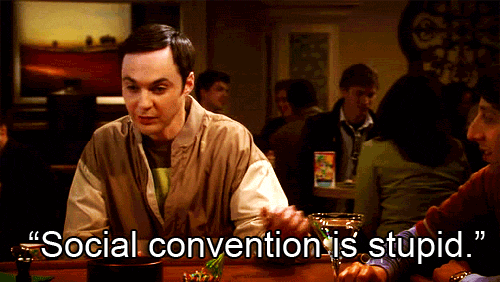Youtube must be psychic. Or listening in on my phone calls.
I was just having this conversation last night – about how easy it is in a high-stress profession to look at everything and see “what’s wrong?” or “what needs fixing?” I mean, analytical thinking is totally crucial for critical fields like healthcare – but back when I was working there, it took me a long time to learn the art of the “yes, and” formula to get people to hear me – because I wasn’t hearing them.
When you work with people in varying states of potential peril (whether it’s in a NICU or with the injured in physical therapy), a mindset for multitasking care becomes a priority. The issue is that can build to the point where proper normal-people etiquette can go out the window altogether.

And that’s not just in the medical profession, either. Whether or not they have a Napoleonic complex, workplace leaders can fall prey to this under the pressure of deadlines and delegating. It becomes easier to combat coworkers because they’re meant to take direction – and when they don’t deliver, the job doesn’t get done.
Enter a vital comedy improve rule.
Back in college, I went to an improv class for fun (actually I was dragged there). I knew the people who were performing, and because they seemed to suck as human beings, I thought they’d suck at comedy too. I was wrong. You know why? Because they knew not to say “no” while volleying improvisational lines at one another.
It made me want to listen because I wondered what was coming next.
When the first response is to shut someone down, it sets an uncomfortable sense of conflict – which is far from entertaining unless the recipient of the “no” can play up the funny “shame” aspect well. Even then, while it might be funny, that particular line of interaction is finished and both players have to start a whole new thought. Rather, when someone agrees and builds on that original idea, you’ve got one consistent line of thinking to follow, with little branches coming off it.
In the same way it’s entertaining in comedy, it’s engaging IRL.
Over in reaility-land, though, you’re not acting for an audience. Your only audience is going to be the person you exchange ideas with. Instead of eliciting laughter, the aim becomes keeping them engaged enough to perform. In essence, you’re performing to get them to perform. The cool thing about the “yes, and” is that it’s not as uncomfortable or “fake” as it sounds, either. It forces you to do some outside-the-box thinking yourself and with that openness comes new innovative ideas you can inject into your workday. Also (if you don’t suck at it), you can use this tool to share your idea that started out seeming like it was the opposite of what the other person was saying.
Delivery is key, though. Ways not to suck are to paraphrase your “yes and” into other affirmations- so long as, ya know, it’s not condescending and sarcastic. Then you can add in what you really wanna say after that. Case in point: a bullet train ticket to your workers emptying their bucket o’ fucks is employing the “mmmmyea”:

…unless, of course, you guys have an inside joke about TPS reports. In fact, if you’re good at getting them laughing, they’ll remember life doesn’t suck and that they don’t want to die after all – so they’ll want to keep their job for at least another day.
And this is fantastic for any non-work convo heading into conflict, too. Basically, if you try your hardest to make the other person feel like they’re being heard and validated, you can get deadlines met, avoid shit-cannery, and maybe even get out of a ticket for going 90 on I-95 to get to work on time.
You can either be perpetually right or perpetuate your 6 figure income. Pick a thing.
(If you pick not to be an asshole, I’m told you can even fit “happiness” in there.)
That’s all. Class dismissed!